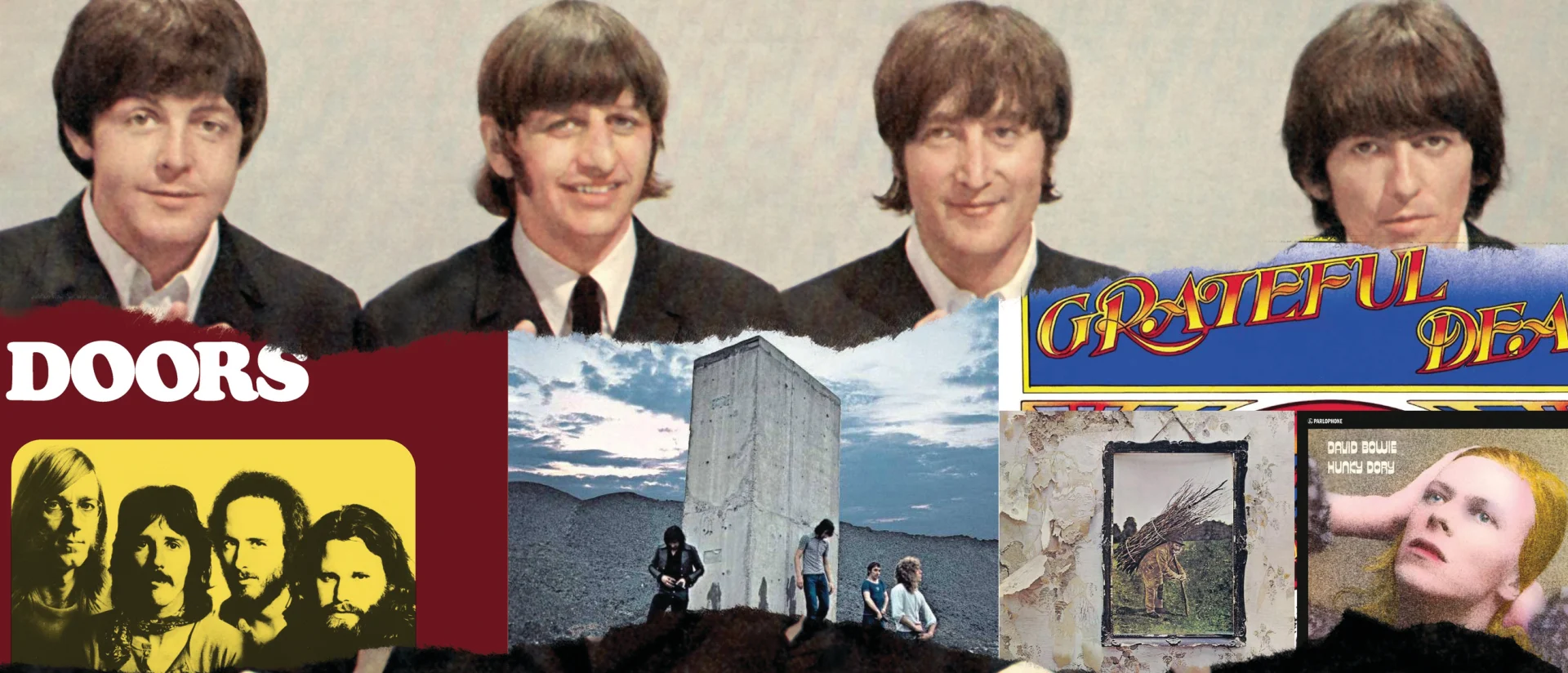Without the drama of The Beatles always in the news, the fans, the press and FM radio, at its absolute height, were exposing lots of great new music in 1971 with an emphasis on true artist development.
Upon the release of Sgt. Pepper (June 1967) I was 14 and had The Beatles, up to this point in my life, three-and-a-half glorious years. Starting in January of 1964 with the charting of “I Want to Hold Your Hand,” The Beatles had been the 800-pound gorilla of the music business.
Year after year the band delivered a steady stream of incredible music and movies. Would it, could it, ever end? I shuddered to think about it. By the time 1969 rolled around, my generation had had the band in our lives for five years and we were just beginning to devour the September 26, 1969 release of Abbey Road when, one month later, the world was informed that Paul McCartney was alive and not dead, as had been reported by several news organizations. The New York Times was compelled to run a story that was, in fact, titled “No, No, No, Paul McCartney Is Not Dead,” rumors to the contrary.
This was the first time that a possible crack in the invincible facade of Beatledom had been reported. It’s important to remember that at this point in the band’s career all the turmoil that many of the books written by those close to the band have given us in great detail, we the fans, the rank and file of Beatlemania, had no idea that there could be anything amiss in the Beatle world. There was no internet, so the British press kept pretty mum and we, the fans, just went about our lives like the band would always be around.
When I read about Paul’s “death,” I got worried momentarily. What if it was true? Even if it wasn’t, why are these rumors surfacing now? Could the band really be near the end? At this point, we didn’t know that the band had recorded the album Let It Be before Abbey Road. That album was supposed to be the swan song.
We didn’t know and, most importantly, the band decided that there was one masterpiece left in them. We didn’t know that either.
We didn’t know that George had quit already… or was it Ringo… or John…
No, none of this was reported.
Then the bombshell.
On April 10, 1970, Paul seemingly announced his departure from the band.

I was in the last months of high school and deeply involved in anti-war protests at the time, but still it felt like the world, my music world, had just come crashing down around me.
The end of The Beatles signaled the end of my innocence and my youth! What next? Could there be a future of rock and roll without The Beatles leading the way? How was I ever going to get over this? The Beatles… gone!
Well, guess what? No sooner did we get over the news and hold onto our copies of the last official Beatles studio album Let It Be in May 1970 than a remarkable transition began to occur.
Nature really does hate a vacuum and it seemed, all of a sudden, just as 1970 was ending, lots of new and established artists began to take over the FM radio stations — Elton John, Cat Stevens, Rod Stewart (solo), The Who, Pink Floyd, Led Zeppelin and so on — with incredible new music. Non-stop, artist after artist, song after song.
That being said, nothing could have prepared us for 1971, the year that many rock and roll artists released music that classic rock was truly built on. There, of course, was no way of knowing at the time what was happening. It’s only in hindsight can we see (and hear) what the music released in that year means to most of the readers of this magazine.
Now, without the drama of The Beatles always in the news, the fans, the press and FM radio, at its absolute height, were exposing lots of great new music with an emphasis on true artist development. Already established artists like Lennon, McCartney, Zeppelin, The Who, The Rolling Stones, Rod Stewart, The Beach Boys, Jeff Beck, Santana and Traffic had to learn to make way for the next generation of superstars such as Elton John, David Bowie, Marc Bolan, Alice Cooper, Don McLean, Jethro Tull and Yes, among others.
Just look at these notable 1971 releases:
The Who, Who’s Next
The Rolling Stones, Sticky Fingers
Mountain, Nantucket Sleighride
Rod Stewart, Every Picture Tells a Story
T. Rex, Electric Warrior
The Beach Boys, Surf’s Up
Led Zeppelin, IV
Jeff Beck Group, Rough & Ready
Traffic, The Low Spark of High Heeled Boys
Santana, III
Yes, The Yes Album

Alice Cooper, Love It to Death and Killer
The Allman Brothers Band, At Fillmore East
Grateful Dead, Skull & Roses
The Band, Cahoots
Fleetwood Mac, Future Games
The Move, Message From the Country
John Lennon, Imagine
Paul McCartney, Ram
Paul McCartney/Wings, Wildlife
Van Morrison, Tupelo Honey
David Bowie, Hunky Dory
The Doors, L.A. Woman
Jethro Tull, Aqualung
Janis Joplin, Pearl
The Kinks, Muswell Hillbillies
Deep Purple, Fireball
Black Sabbath, Master of Reality
Grand Funk Railroad, E Pluribus Funk and Survival
Elton John, Madman Across the Water
Cat Stevens, Teaser and the Firecat
Carole King, Tapestry
Don Mclean, American Pie
A bit overwhelming, isn’t it? How many of these landmark albums do you own?
Me? All of them, actually.
The only thing left to be said is this: John and Paul made major contributions in 1971, too, but this time as solo artists, and they had fierce competition.
The year 1971 will go down in the annals of rock and singer-songwriters as the true golden year of the classic rock era.
This is how I/we got over The Beatles — saying goodbye for the last time.
Long live the new kings!

